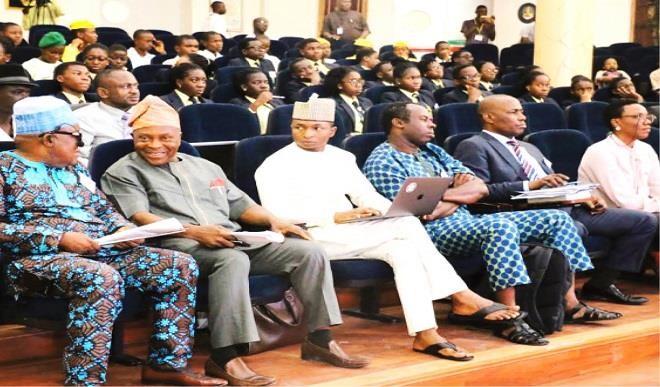International Museum Day: Experts seek re-introduction of history, war museum creation
The re-introduction of History as a subject in Nigeria’s secondary and tertiary institutions came to fore at this year’s ‘2017 International Museums Day’ celebration, hosted by the Olusegun Obasanjo Presidential Library (OOPL), Abeokuta, on Thursday. Speakers also called for the establishment of a national war museum and another presidential library in the country. The programme […]


The re-introduction of History as a subject in Nigeria’s secondary and tertiary institutions came to fore at this year’s ‘2017 International Museums Day’ celebration, hosted by the Olusegun Obasanjo Presidential Library (OOPL), Abeokuta, on Thursday.
Speakers also called for the establishment of a national war museum and another presidential library in the country.
The programme was organised by the OOPL management for students in primary, secondary and tertiary institutions with a video and audio clips on the Nigerian Civil War played to admiration of the visiting students. The guests also took time to take a tour of the library complex.
Dr. Edet Abu Solomon in his keynote address insisted that museum studies must form part of the school curricula at all levels of the country’s education system.
He said it was regrettable that due to the neglect of History in the school curriculum, the young generation know very little able the Nigerian Civil War.
“It is the museum’s role in today’s society to promote public awareness by means of education with special emphasis on health, human welfare, climate change, environment food and education. The museum collections are there to build storylines and give insight into the various human problems in Nigeria,” he said.
Solomon added that, “The role of the museum to develop news or disseminate information via exhibition and public awareness campaign on pressing national issues such as corruption, religious extremism and against the recreation of a new Biafra will have great impact in the country’s sustainable growth.”
He said, “While the battle against corruption, terrorism, kidnappings, theft and vandalism to Nigeria’s cultural property rages, there is need to revive the museum system. I am a strong proponent against the menace destroying our cultural resources. But at the same time, I insist we should direct attention towards creating jobs, increasing revenue for the country and building our economic capacity as a whole using cultural resources.
“By mediating and expressing multiple points of view, museums play a role in peacefully addressing traumatic histories – while still sharing knowledge of the past and giving it meaning to help us understand the world today. Museums therefore become tools for teaching universal values and help create a common destiny among different, peaceful geopolitical spaces.”
Solomon affirmed, “In this kind of situation of general crisis in Nigeria, it would be indeed the role of the museum to engage in critical and reflective thinking on its role in illuminating the past, through interpretation, exhibition, promotion and propagation of the values of our national unity and those things that undermine the basis of our society.”
According to him, “Developing Nigerian museums and cultural resources for economic benefit is inevitable because they can serve as investment vehicles.”
He recalled that as the then Military Head of State, Obasanjo signed the decree that established the former Department of Antiquities as a full fledge commission, known as “The National Commission for Museums and Monuments,” adding that Obasanjo’s resolve might have been fuelled by his knowledge arising from the establishment of Presidential Library whose bedrock is the establishment of museum galleries with high-tech information system, one of its kinds in Nigeria and Africa.
